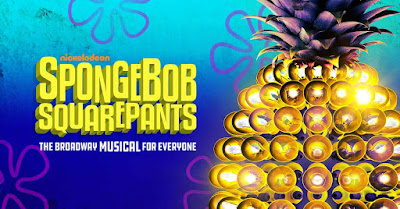I’m newly back from a large and festive wedding. No, I
wasn’t at Windsor Castle, watching Prince Harry exchange vows with his American
bride. I was much closer to home, in an enchanted grove in San Diego, rooting
for two lovely young people who -- in front of family and friends – were
officially becoming a couple.
Harry and Meghan certainly didn’t lack for onlookers. For
one thing, the eyes of the world were on them, via television and the global
news media. And their ceremony was also witnessed in person by scores of VIPs,
some of them heirs to thrones, others royalty of a far different sort. I did a
small informal count of celebrities in attendance. A few were from the sports
world: Serena Williams, David Beckham (of course, the latter is married to a former
Spice Girl.) But many of the big names
in attendance have a Hollywood connection. No surprise that the guest list
included such TV folk as Gabriel Macht and Gina Torres, both of whom are
featured on bride Meghan Markle’s former TV series, Suits. In addition, there were a number of British-born performers:
James Corden, Idris Elba, Carey Mulligan, Joss Stone. And, inevitably, George
and Amal Clooney, whose showbiz mystique (him) and international credentials
(her) apparently make them welcome guests everywhere. And let’s not forget the
presence of her royal highness, Oprah Winfrey.
In comparing Oprah to British royalty, I’m being only half
facetious. Oprah may spring from humble roots, but she’s a monarch nonetheless:
a queen of daytime TV, movie drama, print media, and everything else she
touches. (The book publishing industry counts on her to make best sellers when
she announces her picks for Oprah’s Book Club.) Like Great Britain’s Elizabeth II, Oprah can
get by with a single name, and she doesn’t even need a roman numeral. After a
particularly memorable Oprah speech at the Golden Globe awards, there was
serious public chatter about her becoming the next U.S. president. But I think
it would be more fitting to give her a throne.
The irony, of course, is that the American republic has
always resisted establishing a monarchy. George Washington had to fight hard
against those who wanted to proclaim him the new nation’s king. Still,
Americans are entranced by royals, whether hereditary or elected. We dote on
royal weddings, perhaps even more than the Brits who have to pay for them (see
how one of the biggest turned into a Fred Astaire musical). And we like best
those politicians and their spouses – the Kennedys, the Reagans – who seem to
bring an aristocratic glamour into our country’s highest office. But such
majesty is often in short supply in the White House, and most Americans look to
Hollywood to fulfill their need for beauty and panache. The early movie moguls
knew this well, which is why they worked so hard to find likely candidates and
supply them with star mystique. In the old days, stars like Joan Crawford were
carefully tutored, expensively dressed, lovingly photographed, and shielded
from anything that might detract from their pristine images.
Today we think we
want a more honest approach. We’re used to seeing photos of superstars in their
grubbies (or in nothing at all): they hold onto the sometimes-clunky names they
were born with, and seem to delight in behavior that’s outside the boundaries
of good taste. (Roseanne Barr, I’m talking to you.) Still, I think we need celebrity culture to add romance and
excitement to our workaday lives. The union
of the English prince and the American TV star had both. Long may they thrive.
This post is dedicated
to Sarah Hoffman and Taylor Lucas, with best wishes for much
happily-ever-after.










